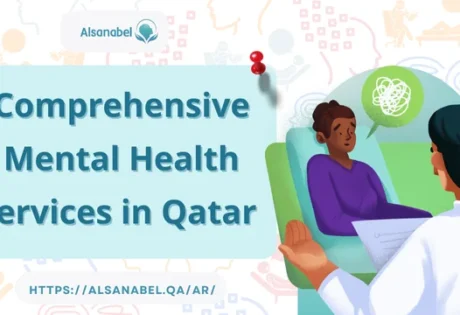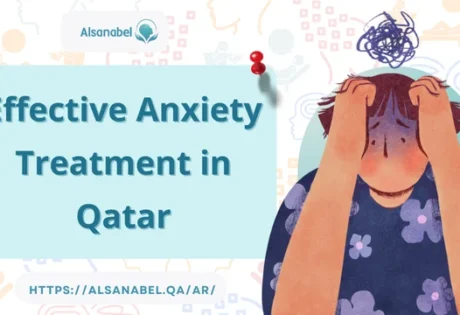
TMS therapy in Qatar has emerged as a groundbreaking treatment for individuals suffering from various mental health disorders, particularly depression. In Qatar, the availability of TMS therapy has brought new hope to those who have not responded well to traditional treatments like medication and psychotherapy. This article will provide an in-depth look at TMS therapy in Qatar, covering what it is, how it works, its benefits, and what you can expect if you are considering this treatment option.
What is TMS Therapy?
Transcranial Magnetic Stimulation Qatar is a non-invasive procedure that uses magnetic fields to stimulate nerve cells in the brain. It is primarily used to treat major depressive disorder, especially in cases where other treatments have not been effective. The therapy involves placing an electromagnetic coil against the scalp near the forehead. This coil sends magnetic pulses that target specific areas of the brain associated with mood regulation.

TMS therapy in Qatar is known for its precision in targeting brain regions, which makes it a highly effective treatment with fewer side effects compared to other options. It does not require anesthesia, and patients remain awake and alert during the procedure.
How Does TMS Therapy in Qatar Work?
TMS therapy in Qatar works by targeting the prefrontal cortex of the brain, which is often underactive in individuals with depression. The magnetic pulses generated by the TMS device stimulate nerve cells in this area, potentially improving symptoms of depression. The stimulation helps to “reset” brain activity, leading to better mood regulation and a reduction in depressive symptoms.
The procedure typically involves daily sessions, lasting about 30-40 minutes, over a period of four to six weeks. Some patients may begin to notice improvements in their symptoms after just a few sessions, while others may require more time to experience the full benefits of the therapy.
Benefits of TMS Therapy in Qatar
TMS therapy in Qatar offers several benefits, making it an attractive option for those struggling with depression and other mental health conditions:
- Non-Invasive: Unlike other treatments, TMS therapy does not involve surgery or the need for medication, which can have various side effects.
- Few Side Effects: The most common side effects of TMS therapy are mild and may include headache or discomfort at the site of stimulation. These effects usually diminish after a few sessions.
- Effective for Treatment-Resistant Depression: TMS therapy has been shown to be particularly effective for individuals who have not responded well to antidepressants or other forms of therapy.
- No Downtime: Patients can resume their normal activities immediately after each session, as the procedure does not require recovery time.
- Long-Lasting Results: Many patients experience long-term relief from their symptoms after completing a course of TMS therapy, with some requiring only occasional maintenance sessions.
Who Can Benefit from TMS Therapy?
TMS Treatment Qatar is primarily used to treat major depressive disorder, but it may also be beneficial for other conditions such as anxiety, obsessive-compulsive disorder (OCD), and post-traumatic stress disorder (PTSD). It is particularly suited for individuals who have not experienced adequate relief from traditional treatments like medication and psychotherapy.
However, Magnetic Therapy Qatar is not suitable for everyone. Individuals with certain medical conditions, such as a history of seizures, metal implants in the head, or other neurological conditions, may not be candidates for this therapy. A thorough evaluation by a healthcare professional is necessary to determine if TMS therapy is the right option.
What to Expect During TMS Therapy in Qatar
If you are considering Magnetic Brain Stimulation Qatar, it’s important to know what to expect during the treatment process:

- Initial Consultation: The first step is an evaluation with a healthcare provider to assess whether TMS therapy is appropriate for your condition. This consultation will include a review of your medical history, current symptoms, and previous treatments.
- Treatment Sessions: Once approved, you will begin a series of TMS sessions. Each session typically lasts between 30 and 40 minutes. During the session, you will be seated in a comfortable chair, and an electromagnetic coil will be placed against your scalp. You will hear a clicking sound and feel a tapping sensation on your head as the magnetic pulses are delivered.
- Course of Treatment: TMS therapy usually requires daily sessions, five days a week, for about four to six weeks. The exact number of sessions will depend on your response to the treatment.
- Monitoring Progress: Throughout the treatment, your healthcare provider will monitor your progress to ensure the therapy is effective. Adjustments to the treatment plan may be made based on your response.
- Post-Treatment: After completing the course of TMS therapy, many patients experience significant improvements in their symptoms. Some may require follow-up or maintenance sessions to sustain the benefits over time.
FAQs About TMS Therapy in Qatar
1. What conditions can TMS therapy treat?
TMS therapy in Qatar is most commonly used to treat major depressive disorder, especially in cases where traditional treatments have been ineffective. It can also be used to treat other conditions such as anxiety, OCD, and PTSD, depending on the individual’s specific symptoms and medical history.
2. How effective is TMS therapy?
TMS therapy in Qatar has shown to be highly effective for many individuals with treatment-resistant depression. Clinical studies indicate that a significant number of patients experience improvement in their symptoms, with some achieving full remission. The effectiveness can vary based on the severity of the condition and the individual’s overall health.
3. Are there any side effects associated with TMS therapy?
The side effects of TMS therapy in Qatar are generally mild and may include headaches, scalp discomfort, or tingling sensations at the site of stimulation. These side effects typically lessen with each session and are considered minimal compared to the potential benefits of the therapy.
4. How long do the benefits of TMS therapy last?
The benefits of TMS therapy in Qatar can be long-lasting, with many patients experiencing relief from symptoms for several months after completing treatment. Some patients may require maintenance sessions periodically to sustain the benefits.
5. Who is not suitable for TMS therapy?
TMS therapy in Qatar is not recommended for individuals with a history of seizures, those with metal implants in their head (such as cochlear implants), or individuals with certain neurological conditions. A thorough medical evaluation is required to determine suitability for the treatment.
By understanding what TMS therapy involves, who can benefit, and what to expect, you can make an informed decision about whether this innovative treatment is right for you. If you are considering TMS therapy in Qatar, consult with a healthcare provider in Qatar like Dr. Sanabel Al Akras to explore this option and take the first step towards better mental health.



